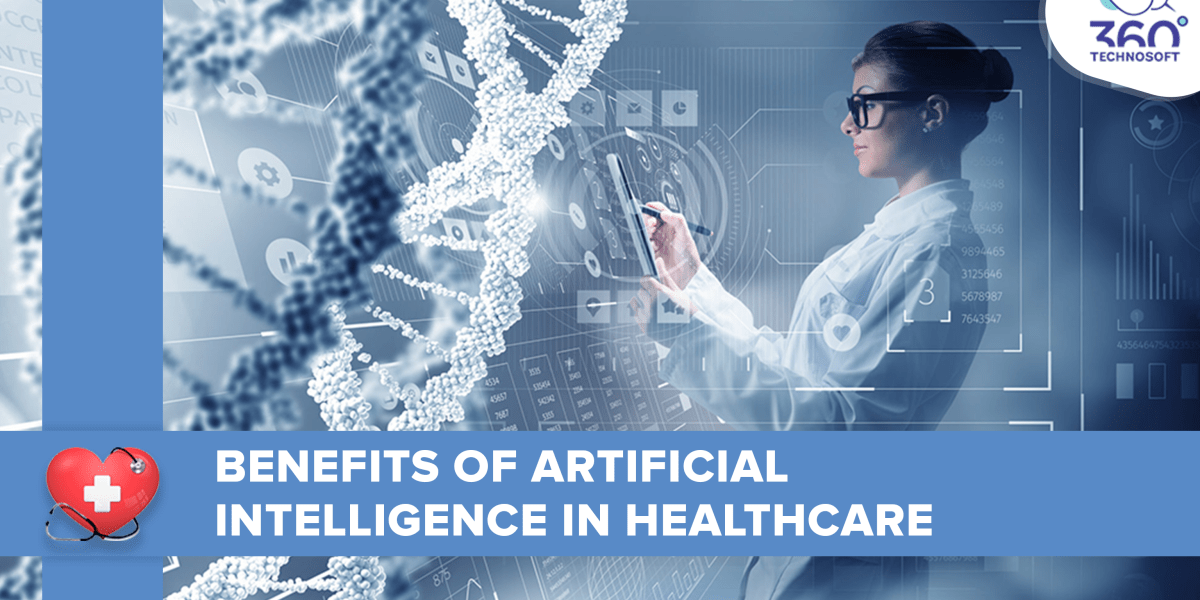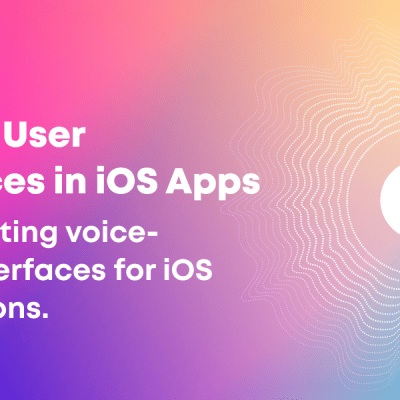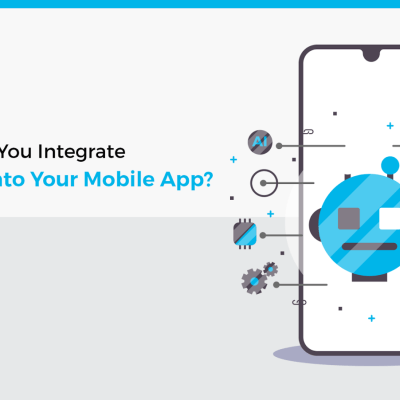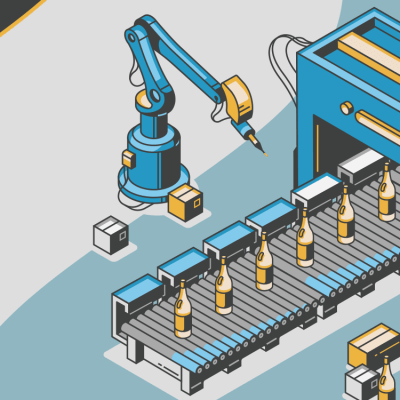Artificial intelligence (AI) is an extensive division of computer science that makes it possible to build machines capable of performing human-like tasks. AI machines can learn & adapt to the experience to perform tasks that need human intelligence. For instance, the smart robotic vacuum, Roomba. It uses AI to recognize the room, its size, any obstacles, and the routes for cleaning the room. It needs no human intervention to do its task of cleaning the floors.
Developed in 1950, by Alan Turing, who proposed a test to provide an operational definition of AI. It said a computer passes the test if it is not possible to know whether the answers to a set of questions given are delivered by a person or a computer. Such a computer would have capabilities like;
- Natural language processing
- Knowledge representation
- Automated reasoning
- Machine learning
- Computer vision
- Robotics
The period of the 1950s–1970s saw early work in Neural networks making it possible to imagine that machines could think.
From the 1980s to 2010 Machine learning gained its importance, wherein AI systems learned from data, identify patterns, and performed tasks or made decisions without human assistance.
Today, AI concentrates more on Deep learning, in which computers are trained to recognize speech or identify images. Deep learning concentrates more on making the computer learn its own way of recognizing patterns using many layers of data. Examples being, your virtual assistants, Siri or Cortana.
How Does Artificial Intelligence Work?
“AI is a family of technologies that perform tasks that are thought to require intelligence if performed by humans,” – Vasant Honavar
AI has two chief aspects, one the engineering, building tools that apply intelligence. And the science of intelligence, that is enabling a machine to give the same result as the human brain. AI combines a vast amount of data with intelligent algorithms. Learning from the patterns or features and presenting the desired output.
The subsets or branches of AI technology that work collectively to deliver the required automated solutions include;
Machine learning involves analyzing and identifying the patterns from past data. And decision-making based on it. All without any human intervention. Machine learning is the process of automation by evaluating data. To save human time and make better decisions.
Deep learning is a part of Machine learning that helps a machine process the input data. Through layers to classify, infer, or predict the output.
The Neural network is creating an algorithm that allows the machine to learn like a human brain. By inputting new data. For instance, while recognizing an object, the neural network gets presented with a large number of objects of a particular kind. Like a street sign and the machine by analyzing the patterns recurring in the presented images learns to classify. Even sort the new images.
Natural language processing is the capability of the machine to understand and interpret languages. Upon knowing what the user intends to communicate with the machine, it can respond likewise.
Computer vision is an algorithm to check any image by breaking it down and studying the different parts of it. This helps the machine to learn in-depth. And make a better outcome decision based on such observations.
Cognitive computing includes algorithms that imitate the human brain. For text, speech, an image in the way a human does, thus giving the desired and proficient output.
Artificial intelligence incorporated in machines allows them to perform any tasks smart. Or even better than humans. To make AI more responsive and smarter, the usage of plenty of data is ideal. Like the human mind which has the most data around.
Importance of AI
When you look at modern applications like Google Maps or Lyft that use AI to make the commute easier, you wonder about the potential of AI. AI not only brings automation that can ease out any human task but also offers;
Intelligence
AI makes it possible for systems to improve. Or come up with better solutions. For example, Smart machines, bots, or even conversational platforms that take up large amounts of data to enrich the processes and systems.
Computerized Tasks
Instead of automating manual repetitive tasks, AI can operate frequent, high volume tasks free of error.
Deeper Data Analyses
AI works on neural networks that penetrate through big data and become more accurate.
Skilled Output
AI employs a large amount of data in a way that the algorithms get the skill of teaching themselves. It can adapt to the new data, check all, and learn new things on its own even, adjust through training.
For example, Alexa or Google Search, and Photos are all AI-based and they keep getting more revised, more accurate, and more futuristic the more they are used.
Application of AI
Artificial intelligence is marking its presence and automating enormous tasks for humans. Let’s look at a few uses of artificial intelligence across industries;
Education
AI has helped in automating the grading system. Presenting with smart content. Providing teachers and students with personalized learning and instant feedback. And customized online tools for adaptive learning. AI has become an integral part of the education sector while the traditional methods have faded. For example, a chatbot that can provide answers to a variety of questions, or formatting assignments.
Autonomous Vehicles
Self-driving cars are one of the best examples of AI in action. AI has made car driving effortless and very safe. With alerts to drivers and for instance help at the time of negligence or rash driving. For instance, CarVi is a delivery service where users can shop and pick items through their app. Even have them delivered. It is also used as a personal vehicle, for ride-sharing, or under auto insurance companies.
eCommerce
AI-based systems help storage companies to manage huge amounts of stock or inventory. With proper management, automated warehousing, and supply chain management system. Like, Amazon uses AI to help customers shop and get purchasing recommendations. Its other services include estimating home prices, visual search, and much more.
Banking & Finance
AI systems in the banking segment mainly provide customer support, check for any errors or card frauds. While it has become the main researcher for the trading and stock market performance. AI solutions are also used for better security across the banking and finance sector. For example, Socure, an identity verification platform. It analyses an applicant’s data to help clients meet KYC conditions. The system investigates information such as email addresses, phone numbers, IP addresses, and proxies. To see whether an applicant’s information is being used correctly.
Travel
AI is seen in the travel industry as a time and money saver. This sector relies on delivering excellent customer service to build its reputation. AI technology can assist with this most efficiently and easily. Artificial intelligence can be used to provide personalization, customize recommendations, and assure a fast response. For instance, Utrip provides personalized travel recommendations by using AI and machine learning algorithms. For this, it partners up with airline companies, marketing organizations, convention and visitor bureaus, cruise lines, and even hotels.
Entertainment
AI has helped shift the user experience from luxury to personalization. It has become more on-demand entertainment, search optimization that influences the user substantially. Like, popular music and video streaming platforms Spotify and Netflix which offer content to people across the world. Providing them customized feeds based on their different tastes and preferences.
Social Media
The powerful social networks across the world like Facebook, LinkedIn, or Snapchat use AI for content, advertisement, and regulation. For instance, Sprout Social’s automated technology generates tweets that can be used to reply to fans, customers, or followers.
Agriculture
Autonomous tractors or drones have helped farmers increase crop protection and productivity. Automated machines and robots are in fields to track crop health or weather monitoring conditions. And also harvesting. For example, Prospera has developed cloud-based solution sensors and aerial images that combine it with an in-field device. The inputs from these sensors are then used to find a connection between varied data and make predictions like weather or crop health.
Gaming
AI-based games have improvised the gaming experience. It has made it a very exciting and diverse exploration for the gaming industry. For example, The Mind Game presents its players with situations to test their mental strength. The game is very procedural, generating environments and situations. It allows players to perform several actions in a virtual world that they could in the real one. Even responding to adapting the emotional and psychological state of its players. And human behavior is evolving.
Food
From sorting food to managing the supply chain and delivering the food at the doorstep. AI solutions are helping the food industry serve savory delights at low cost and most customization. Like, TOMRA Sorting Food, uses sensor-based sorting solutions with machine learning capabilities that have cameras and near-infrared sensors. To view, classify, and efficiently sort the food. It saves the hours spent on manual sorting, wastage, and ensures no error with quality.
RPA
RPA is a technology that automates business processes that are repetitive or highly structured. RPA tools can be used to capture data, manage transactions, and store information. RPA is the best solution to reducing labor costs as well as preventing any human errors. For instance, Kryon Systems is a provider of RPA solutions to the claims sector. Fastening their process, smoothening their systems, and improving their management.
Artificial Intelligence has touched several applications in today’s time. It is becoming an essential element for every industry. To become more efficient and effective. AI is making daily human life comfortable and faster.
Impact of AI on the Healthcare Industry
The industry that is most positively affected by AI and transformed to a different level in the healthcare industry. AI in healthcare has helped in the simplification of human tasks performed, in less time and cost. Making it trouble-free for the patients, doctors as well as administration.
According to a 2018 CB Insights report, about 85% of healthcare provider organizations, life science companies, and technology vendors to healthcare are using artificial intelligence. It is said by 2021, an average of $56 million will be spent on projects on artificial intelligence in healthcare. It is predicted to reach $150 billion by 2026.
Imagine a world of secure and personalized healthcare. Giving doctors instant access to patients’ real-time or past history. Let’s have a look at the processes that become easy with artificial intelligence in the medical industry;
Managing data
Digital automation of data and patient information has helped to store, format, and trade medical records. In a consistent and faster way.
Executing tedious tasks
Analyzing tests, scans, X-Rays or any routine tasks can easily be done via automated systems or even robots.
Analyzing treatment
AI systems help to research and provide clinical expertise. On the selection of customized individual treatment courses.
Consultation online
Medical consultation online has gained much popularity in the past few years. Patients can input their symptoms into the app and based on personal medical history, the database provides details of the type of illness. As well as the solution to it. Like, Babylon app.
Digital nurse
A virtual nurse helps track patient’s conditions and assist in follow-ups. For example, Molly, a digital nurse by sense.ly.
Managing the medication
The National Institutes of Health came up with the AiCure app to supervise the use of medication by a patient. A smartphone’s webcam is enabled with AI to autonomously confirm that patients are rightly taking their prescriptions.
Creating medicines
Normally, creating a drug takes a lot of trials and invests loads of time and money in the process. An automated process can make it faster and cheaper. For instance, a program powered by AI was used to scan existing medicines that could be redesigned to fight the Ebola virus. The medications were identified in a day where normally it would take a year. It not only saved time but also thousands of lives.
Scanning with precision
AI helps body scans that go very deep and help look for any mutations or links in the DNA too. This assists in spotting cancer or vascular diseases early on, which can further aid in faster treatment.
Monitoring the health
Wearables like FitBit help keep a tab on the heart rate or activity levels. It sends alerts about exercise, diet, and even habits of the users.
Surgery
Medical surgery assisted with AI helps reduce surgical differences or inefficiencies. Surgeons utilize AI systems to better understand the techniques that bring into line better results. Such insights can also aid in patient’s postoperative and long-term health monitoring.
For instance, an AI-assisted surgery robot was employed to join small blood vessels, no larger than .03 millimeters. The patient had lymphedema, which is a chronic condition where fluid builds up inside the body and causes swelling. Also, a condition of breast cancer. Microsurgery was performed on the patient with the aid of an AI robot, which came to be a possibly much better treatment for the condition.
The procedure involved linking lymphatic vessels to blood vessels to re-establish the flow of lymphatic fluid and lessen the swelling. AI helps surgeons find out what is happening during a complex surgery by providing real-time data on the movements the surgeon makes during such a procedure. Such a tool provides medical professionals with appropriate content to manage and leverage surgeries to further help identify and decrease risk, expand quality, and enable data-enabled training.
The new generation of AI tools and systems is making health care more efficient. Urging into a new era of quality and stimulating breakthroughs in patient health care. It is developing methods and treatments that reduce errors from diagnosis to treatment.
“By augmenting human performance, AI has the potential to markedly improve productivity, efficiency, workflow, accuracy, and speed, both for [physicians] and for patients … What I’m most excited about is using the future to bring back the past: to restore the care in healthcare.” — Eric Topol,
Conclusion – Future of Artificial Intelligence
“I imagine a world in which AI is going to make us work more productively, live longer, and have cleaner energy.” -Fei-Fei Li, Professor of Computer Science at Stanford University
With rapidly changing technologies, the world is getting prepared to witness an innovative wave of existence. Whether deeptech or fintech, foodtech or conversational chatbots, mobility, or healthcare AI has revolutionized most industry sectors today. Artificial intelligence future will have machines perform even more like humans, learning and adapting over time, this is the new age reality.






